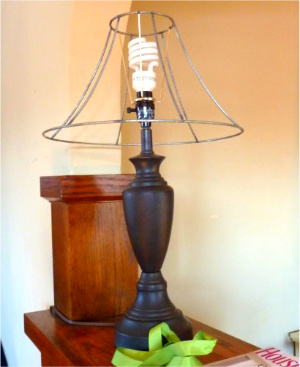
Greetings fowl lovers of all kinds. You probably started off with a few chickens of a hardy, generic variety, then fell victim to chicken math and expanded your flock to include all kinds of fun breeds. You might have even entertained the thought of raising guineas, hearing they were the watchdog of the barnyard. Then, you end up here. Thinking about raising ducks because, it was the next logical step in your new homesteading addiction.
People are sometimes leery of adding ducks to their barnyard flock because ducks seem different. They don’t roost and don’t follow the pecking order type of social structure, so raising ducks can seem a mystery. In reality, they are the easiest fowl to keep around.
You will need:
- A brooder
- Predator proof fenced run for at night unless you use a barn
- Water source
- Basic shelter, nothing fancy

If you are raising them from day old ducklings, you can set up a brooder much the same as you set up a chick brooder for your chickens. The only differences from a chick brooder are offering a water dish for dunking their bills to clean their nostrils, and keeping the heat source more confined so they can escape the heat to cool off. Ducks run hotter than chicks, so they need a cool zone to escape to when needed.
See: How to Set Up a Duckling brooder

Once your ducks are ready to go outside, you can set them up with a run just like you would a chicken run. If you are adding them to an existing flock, you can place them in the run and then supervise for a few hours to keep the chickens from pecking the ducks. Since your ducklings would be about three weeks old by the time you introduce them to the flock, they will be large enough to run away from pecking, but not aggressive enough to stand up to bullying from chickens. The alternative way, is to skip a brooder all together and set up a separate section in your coop to allow a broody chicken hen to raise your ducklings. Then you could integrate the young family back into the flock at about two weeks of age. The surrogate mama will protect the babies and ease the transition.
Overall, ducks mind their own business and keep to themselves, so if you are raising a groups of ducks together, it is easy to just add them to your chicken flock. The pecking order will not apply. It is only problematic if yo are only adding one duck. Then, I would recommend raising that duck with a few chicks so they are bonded when they then join the group. I have one female pekin who only hangs out with the chickens and rarely socializes with her fellow ducks.

For housing, you could just have your ducks nest on the floor of your coop. Although, then the roosting chickens will poop all over them during the night. It is important to know that ducks will not put themselves to bed in a coop like chickens do. And if you build them their own coop, they will likely not use it unless you herd them into it and shut the door every night. For a duck house, they are more likely to use it if it is a three sided structure. They hate being enclosed.
See: Building a Duck House
The real deal is ducks will choose the crummiest structure they can find to be their house. We have FIVE nice coops and houses our ducks could choose to rest in, and instead they pile under a dilapidated pallet leaning against a rotting tree trunk. This is typical for most duck flocks. If you have a pond, they will likely just sleep together in tall grass. If you want your ducks safe from predators, you will want a covered run for them, but otherwise you can do without a coop and just offer them a doghouse or a lean-to style structure for nesting and to keep their food dry.

The biggest issue with raising happy ducks is water source. You can raise ducks without a pond or pool. You can offer them just a bucket for dunking their heads and cleaning their bills. It will be adequate. However, ducks love mud and they love splashing. They will be filthy after every rain shower. They will not hide away in a coop in rain like other fowl. Ducks will be outside running allover quacking loudly and having a party during the wildest of storms. They will be like Lieutenant Dan in Forest Gump, howling on a mast pole during the hurricane. They will roll in the mud, drag their bills through the mud, hunt for worms in that mud. They will be very dirty ducks. One thing those duckies love as much as mud, is open water for splashing and bathing ( and mating). If you have a pond on your property, just build your run near the water and expect them to rarely leave it. Even if you raise migratory breeds, they will return to your pond in the warm season. If no pond, no worries. We have a plastic wading pool our kids no longer use and a watering trough we fill up. They use the trough more than the kiddie pool. A six foot by two foot steel trough from Tractor Supply and some wood planks for stairs does the trick. We will often have five jumbo pekins and the occasional rooster frolicking around in that water. Once they finish, they eat some chives and relax under the spruce trees.

If you live in a cold climate, just make sure to keep some water open for them. Even when temps dip to -30F, our ducks do not seek shelter. They are warm enough with their body fat. We use a rubber water trough with a birdbath warmer to keep the water just thawed enough for them to peck it open for head dunking.
See: Wintering Chickens in a Cold Climate

Basically, if you have a dog kennel, a doghouse, and water dish warmer, you have everything you need for wintering ducks. Ducks may be messy with all the mud and splashing, but I would argue they are the easiest fowl to keep since they are so hardy. If you get a large breed of duck, birds of prey will not bother with them. And as long as you have at least one hen for each drake, you should be OK and not have problems with over-mating. Although, I would suggest having an extra hen or two just in case. Plus, more hens means more eggs. Your ducks will lay about 200 eggs a year and duck eggs make really lovely muffins and brownies.





